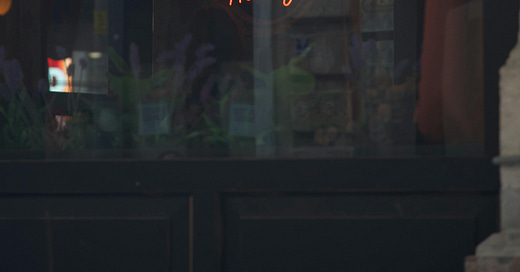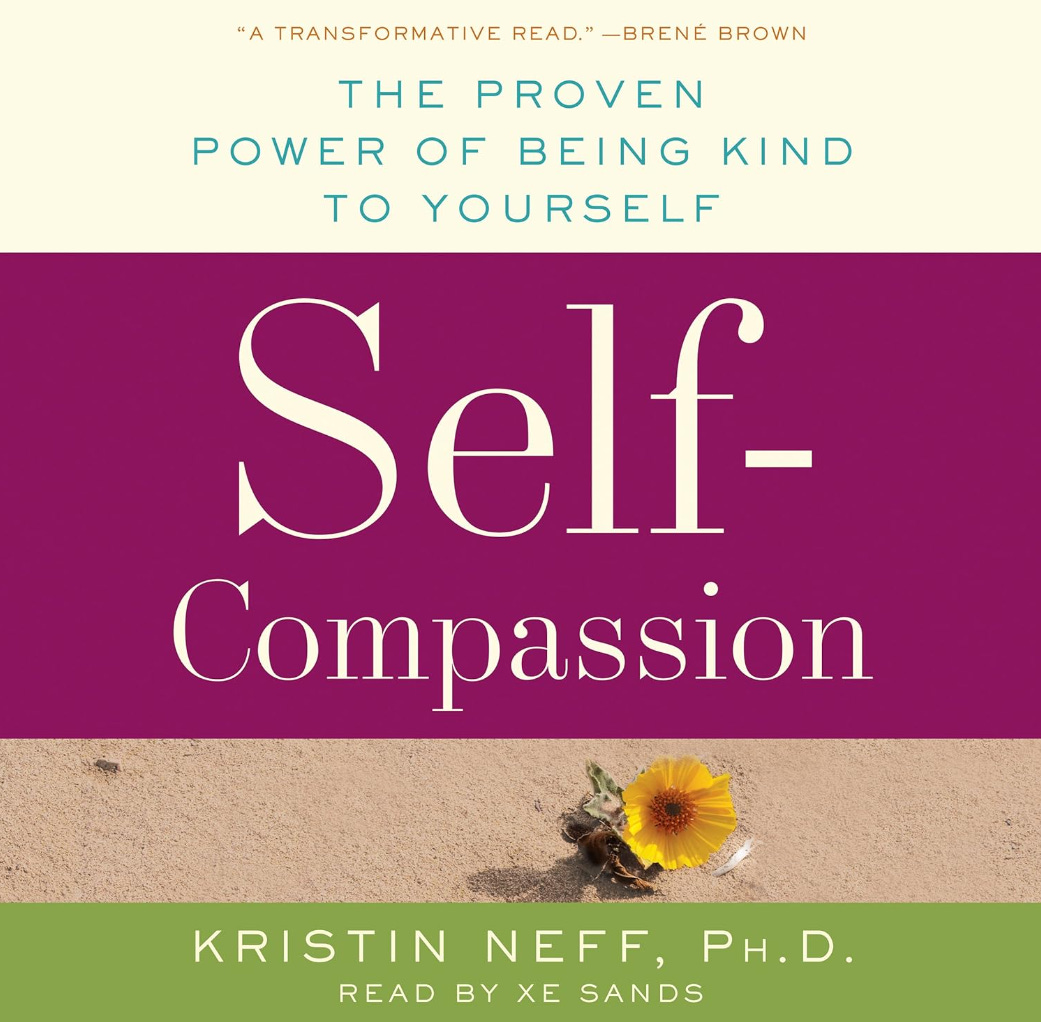Virtus 👊 #025: The Accomplished Divorce - Reframing the End as a Beginning
Here's something I never expected to articulate: I view my divorce as an accomplishment.
Here's something I never expected to articulate: I view my divorce as an accomplishment.
Not in the "thank God that's over" sense that permeates our cultural narrative, but as an intentional evolution between two people who grew together and eventually grew beyond the confines of traditional partnership. After two decades of shared existence, we marshaled our collective wisdom to create a different, more authentic arrangement that honors both our individual trajectories and our shared history. The gravitational center—our son—continues to bind us, transforming his mother into perhaps my most trusted confidante. This restructuring wasn't solely for his benefit, though; it reflected our mutual recognition that personal evolution sometimes requires institutional transformation.
There is no failure in this story. I've traversed that psychological terrain and emerged on the other side. What I didn't anticipate, however, was the disorienting challenge of reestablishing my relationship with "the rest of the world"—until I recognized that this supposed "rest of the world" had gradually evaporated while I wasn't looking. Like many men, I had succumbed to the provider paradigm: the relentless focus on work and immediate family that imperceptibly erodes all other dimensions of identity until your selfhood becomes indistinguishable from your responsibilities.
After finalizing the legal dissolution, there was no exhilarating liberation, no sudden lightness of being. I maintained my established patterns—work remained my primary refuge—and discovered I possessed embarrassingly few tools for reconnecting with myself, let alone establishing meaningful connection with a potential partner who might complement the person I was becoming rather than the person I had been.
The Seductive Fallacy of Solitude
For a period, I not only tolerated but cultivated my solitude. I intellectualized it with philosophical justifications: "We ultimately face mortality alone, so why not process this existential reality now?" This convenient rationalization reinforced my isolation and provided an elegant excuse to avoid the vulnerability inherent in forging new connections.
In my mid-forties, I maintain relatively few friendships, which on most days feels sufficient. But despite the depth these connections occasionally achieve, I've recognized a fundamental absence of meaningful support structures. There exists no tribe offering guidance, no community fostering belonging. To clarify, I maintain healthy skepticism toward "Society" as a construct—we are subject to countless manipulations as social beings. But the presence of kindred spirits who intuitively understand your particular wavelength? I miss that. I have missed it for longer than I've been willing to acknowledge.
Navigating the Connection Desert
The revelation that emerged during this period was both straightforward and profound: I had effectively forgotten how to establish authentic human connection. I deflected with self-deprecating humor—"Where exactly do people meet in 2025?"—while harboring genuine bewilderment. Residing in a relatively isolated location, working remotely, there were two full years following the pandemic during which my in-person interactions were limited to essential services. Digital interfaces became my primary mode of human engagement, a pale substitute for embodied connection.
How does one reacquire the art of human relationship after such extended isolation? The answer emerges with humbling simplicity: through incremental engagement.
I compelled myself toward human contact, initially through the relatively safe context of professional interaction. I committed to accepting any international travel that might facilitate new encounters. Nothing transformative occurred immediately. I engaged with people, certainly, but my barely concealed desperation to discover a partner created an almost palpable barrier to authentic connection.
Confronting Conventional Wisdom
There exists a piece of conventional wisdom that consistently provoked my irritation: "You'll meet someone when you stop actively searching." This platitude would invariably trigger profound resistance.
I have always chafed against circumstances beyond my control. My professional identity has been constructed around strategic planning and methodical problem-solving. The suggestion that I should surrender to chance in perhaps the most consequential domain of existence felt not merely counterintuitive but fundamentally misaligned with my approach to life.
What gradually crystallized wasn't that I needed to abandon the search entirely, but rather redirect my attention—not outward toward potential partners, but inward toward unexamined aspects of self. The critical insight emerged when I recognized that my anxious anticipation of partnership was inextricably linked to deeper beliefs: "Who would consider me desirable? I possess physical characteristics I deem unattractive. My financial circumstances remain precarious. My living situation is less than ideal. What value might I offer another person?"
The revelation was both obvious and transformative—I wouldn't have chosen myself as a partner. Why, then, would anyone else?
Negotiating Peace With Self
My breakthrough wasn't abandoning the desire for connection, but establishing peace with my current self rather than some hypothetical future version who had "resolved" all perceived inadequacies.
I began attending to sources of authentic joy, even within professional contexts I had previously viewed instrumentally. I addressed elements within my control: declining projects that depleted rather than energized me, extracting myself from unnecessary conflict, refusing to approach contracts from a position of desperation, and requesting compensation reflective of my actual value without paralyzing fear of rejection.
I ceased operating from perpetual survival mentality and cultivated grounded optimism: if financial abundance wasn't immediate, at least I was engaged in work that aligned with core values.
The subsequent transformation wasn't magical manifestation but perceptual realignment. I began recognizing compatible individuals in my vicinity, people who had likely been present while I remained preoccupied with perceived inadequacies. I wasn't absent from potential connection; I simply occupied a psychological space that prevented authentic recognition.
A substantive conversation in Cabo San Lucas. Another in Tallinn. Unexpected engagement in Cyprus, then Spain. I navigated the world with greater receptivity, and though no idealized partner materialized, something equally valuable emerged: deepening contentment with present circumstances. I began experiencing encounters on their own terms rather than evaluating them as successful or failed attempts at finding partnership. I experimented with varied social configurations.
I developed clarity regarding preferences and boundaries while learning to allow things that didn't resonate to exist without judgment. I didn't require universal compatibility. This realization—that others could exist in their own orbits without forced intersection with mine—paradoxically created space for authentic connection.
Finding My Tribe and My Person
It happened. Not in some movie moment with swelling music, but through small connections that slowly built into something real.
The work continues. It will never fully end. But moving from making peace with myself, to actually liking myself, and finally toward self-love has been bringing me home. Not to a house or even to a specific relationship, but to something bigger: finding my people. Those who see the real me and reflect back the best parts of who I am.
This is what I was missing all along—not just a partner, but a tribe. People who get my jokes without explanation, who challenge me when I need it and support me without question. A chosen family where I can finally breathe out and think, "These are my people."
And then, while finding this community, I met her. Being with her feels both exciting and comfortable, like finding a new room in a house you've lived in for years. Our connection isn't the desperate lifeline I once searched for. Instead, it grew naturally in the good soil I had prepared. With her, I've found a different kind of home—built on seeing each other clearly rather than just needing each other.
The journey after divorce isn't about rushing to fill an emptiness or trying to rebuild exactly what was lost. It's about creating the right conditions for your true self to find people who truly fit.
After all, the connections that last—with ourselves, our communities, or our partners—aren't the ones we hunt down with checklists and deadlines. They're the ones we make space for, allowing them to find us when we're both ready to really see each other.
"Self-Compassion: The Proven Power of Being Kind to Yourself"
Ever notice how we treat ourselves worse than we'd ever treat a friend? Dr. Neff's groundbreaking work shows why that needs to change - especially when you're rebuilding life after a major transition.
Why This Book Hits Different:
Written by a scientist, not a self-help guru
Backed by research, not just feel-good platitudes
Shows why self-compassion works better than self-criticism
Speaks to men without the usual self-help fluff
Core Truth Bombs:
Being hard on yourself doesn't make you stronger - it actually undermines resilience
Self-compassion isn't self-pity - it's the foundation for real growth
Making peace with yourself isn't weakness - it's the ultimate strength
You can't truly connect with others until you stop waging war on yourself
Who Needs This:
Guys going through major life transitions (like divorce)
Men who find themselves stuck in negative self-talk
Anyone whose inner critic sounds like a drill sergeant
Brothers ready to build something new from the ground up
Best Quote to Drop at the Gym:
"When we fight against our suffering, we create additional suffering."
The Real Talk:
This isn't another book telling you to just "think positive." It's a practical roadmap for moving from the constant battle with yourself toward genuine self-acceptance. Neff shows how the things you dislike about yourself are often the very gateways to deeper connection - both with yourself and others.
Action Steps After Reading:
Notice your self-talk patterns
Practice treating yourself with the same kindness you'd offer a good friend
Use specific self-compassion exercises during tough moments
Build resilience through acceptance rather than criticism
Bottom Line:
If you've been at war with yourself, this book offers a cease-fire that doesn't feel like surrender. It feels like finally coming home.
Remember:
Making peace with yourself isn't the end of your journey - it's the beginning of a much better one.
🔮 “If I Could Text My Future Self”
Hey 2035 Me,
If you’re still skipping leg day and ghosting emotions, we’re gonna need a team talk. Also… did we ever learn to play violin?
Stay strong. Stay weird.
—Me🥸 “Man Myth of the Month”
Myth: “Men peak in their 30s.”
Debunked: Most men hit emotional intelligence, deeper friendships, and sexual maturity after 40.
Bonus: Nobody peaked with that haircut anyway.🧙♂️ “What Would Stoic Dad Say?”
Q: “I’m 43, not single anymore, and my fridge still has ketchup, beer, and anxiety. Advice?”
A: “Restock. Reboot. Real men prep meals too. Ketchup is not a sauce for sadness.”ABOUT MENQUILIBRIUM
We're not life coaches or gurus. Just men walking beside other men on the path to better.
This isn't about fixing you. You're not broken. (I’m obsessing about this).
It's about finding strength in honesty and growth in connection.
What you'll find here:
Real talk, no sugar-coating
Tools that work, not quick fixes
Brothers who get it
Know someone who needs this? Send it their way.
🤜🤛
We rise by lifting others.
Like the sunrise, change happens gradually. We're building a platform where men can find their balance, together. Your support today helps lay the foundation for tomorrow.
Early supporters will receive Founder status when our app launches in late 2025.






Having gone through a divorce a few years back and another significant break up just last month, I deeply appreciate this message. Learning to foster a deeper relationship with myself and accepting the value of solitude as I heal parts of myself that need to be healed in order to be a better partner.
Thank you for sharing your experience and wisdom with such transparency and clarity, Dragos. You continue to inspire!